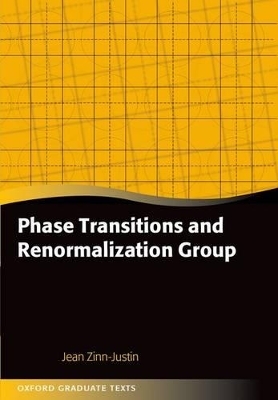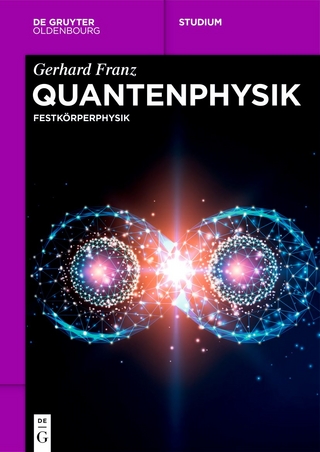
Phase Transitions and Renormalization Group
Oxford University Press (Verlag)
978-0-19-966516-7 (ISBN)
This work tries to provide an elementary introduction to the notions of continuum limit and universality in statistical systems with a large number of degrees of freedom. The existence of a continuum limit requires the appearance of correlations at large distance, a situation that is encountered in second order phase transitions, near the critical temperature. In this context, we will emphasize the role of gaussian distributions and their relations with the mean field approximation and Landau's theory of critical phenomena. We will show that quasi-gaussian or mean-field approximations cannot describe correctly phase transitions in three space dimensions. We will assign this difficulty to the coupling of very different physical length scales, even though the systems we will consider have only local, that is, short range interactions. To analyze the unusual situation, a new concept is required: the renormalization group, whose fixed points allow understanding the universality of physical properties at large distance, beyond mean-field theory. In the continuum limit, critical phenomena can be described by quantum field theories. In this framework, the renormalization group is directly related to the renormalization process, that is, the necessity to cancel the infinities that arise in straightforward formulations of the theory. We thus discuss the renormalization group in the context of various relevant field theories. This leads to proofs of universality and to efficient tools for calculating universal quantities in a perturbative framework. Finally, we construct a general functional renormalization group, which can be used when perturbative methods are inadequate.
Professor Jean Zinn-Justin Head of Department, Dapnia, CEA/Saclay, France
1. Quantum Field Theory and Renormalization Group ; 2. Gaussian Expectation Values. Steepest Descent Method . ; 3. Universality and Continuum Limit ; 4. Classical Statistical Physics: One Dimension ; 5. Continuum Limit and Path Integral ; 6. Ferromagnetic Systems. Correlations ; 7. Phase transitions: Generalities and Examples ; 8. Quasi-Gaussian Approximation: Universality, Critical Dimension ; 9. Renormalization Group: General Formulation ; 10. Perturbative Renormalization Group: Explicit Calculations ; 11. Renormalization group: N-component fields ; 12. Statistical Field Theory: Perturbative Expansion ; 13. The sigma4 Field Theory near Dimension 4 ; 14. The O(N) Symmetric (phi2)2 Field Theory: Large N Limit ; 15. The Non-Linear sigma-Model ; 16. Functional Renormalization Group ; Appendix ; 1. Quantum Field Theory and Renormalization Group ; 2. Gaussian Expectation Values. Steepest Descent Method . ; 3. Universality and Continuum Limit ; 4. Classical Statistical Physics: One Dimension ; 5. Continuum Limit and Path Integral ; 6. Ferromagnetic Systems. Correlations ; 7. Phase transitions: Generalities and Examples ; 8. Quasi-Gaussian Approximation: Universality, Critical Dimension ; 9. Renormalization Group: General Formulation ; 10. Perturbative Renormalization Group: Explicit Calculations ; 11. Renormalization group: N-component fields ; 12. Statistical Field Theory: Perturbative Expansion ; 13. The sigma4 Field Theory near Dimension 4 ; 14. The O(N) Symmetric (phi2)2 Field Theory: Large N Limit ; 15. The Non-Linear sigma-Model ; 16. Functional Renormalization Group ; Appendix
| Reihe/Serie | Oxford Graduate Texts |
|---|---|
| Zusatzinfo | 28 b/w line drawings |
| Verlagsort | Oxford |
| Sprache | englisch |
| Maße | 172 x 246 mm |
| Gewicht | 798 g |
| Themenwelt | Mathematik / Informatik ► Mathematik |
| Naturwissenschaften ► Physik / Astronomie ► Festkörperphysik | |
| Naturwissenschaften ► Physik / Astronomie ► Hochenergiephysik / Teilchenphysik | |
| Naturwissenschaften ► Physik / Astronomie ► Quantenphysik | |
| Naturwissenschaften ► Physik / Astronomie ► Thermodynamik | |
| ISBN-10 | 0-19-966516-8 / 0199665168 |
| ISBN-13 | 978-0-19-966516-7 / 9780199665167 |
| Zustand | Neuware |
| Informationen gemäß Produktsicherheitsverordnung (GPSR) | |
| Haben Sie eine Frage zum Produkt? |
aus dem Bereich


